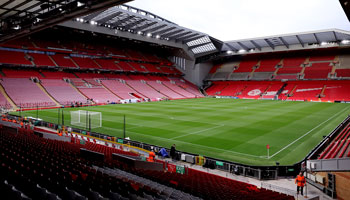Newcastle and Manchester United’s early exits from the Champions League, and now both Liverpool and West Ham potentially heading out of the Europa League, could mean bad news for English teams in Europe next season.
Home defeats for both teams in the Champions League in December saw both Newcastle and United eliminated at the group stage and may contribute to a Premier League club missing out on a fifth place in next season’s Champions League.
Both Liverpool and West Ham suffering defeats in their first-leg Europa League quarter-final ties hasn’t helped matters either, with now both seen, by bookies and fans, to be unlikely to progress to the last four of the competition.
Here bwin seeksz to explain why.
What is this all about?
In May 2022 UEFA signed off on the format for the new-look Champions League, which will feature a 36-team league phase from next season instead of the 32-team group phase we have all got used to.
Initially it had been proposed that the two clubs with the highest individual coefficient score – based on their historic European performance – who had missed out on Champions League qualification via the conventional route would still gain entry to the new league phase, provided they had done enough to qualify for one of the other two UEFA club competitions.
That proposal was controversial because it could have meant teams ‘leapfrogging’ into the Champions League over clubs with a lesser European pedigree.
Instead, a decision was ultimately taken to award the places to one club from each of the two countries who collectively perform best in the previous season’s three UEFA competitions.
How do they work that out?
Each time a club wins a game in Europe, they get two points in the coefficient rankings, one for a draw and none for a defeat. Bonus points are also awarded for the progress a team makes in the competition they are involved in, with extra weighting given to the Champions League in that respect.
A country score is then calculated by adding together each clubs’ score and dividing it by the number of clubs from that country playing in European competition.
Newcastle and Manchester United’s failure to qualify for the Champions League last 16 saw them miss out on a collective 10 coefficient points, plus any additional points for further wins and progress in that competition. They could also have gained extra points via progress and results in the Europa League.
Liverpool and West Ham also missed out on points for not winning their first-leg ties, and will be missing out on additional rewards should they have progressed to the semi-finals, or even the final, and won there.
How do the standings currently look?
England, Spain and Italy currently hold the top three positions, which would mean the one club in each of those countries who came closest to qualifying for the Champions League via the conventional route would benefit.
England could still get one of the top two places if the Premier League clubs left in Europe perform extremely well, but the failure of two of the English teams in Europe to make the Champions League last 16 – or even to drop into the Europa League – made it more of an uphill struggle. Things also weren’t helped, as noted, by the recent European performances of both Liverpool and West Ham.
For context, in four out of the previous five seasons, England finished in the top two.















